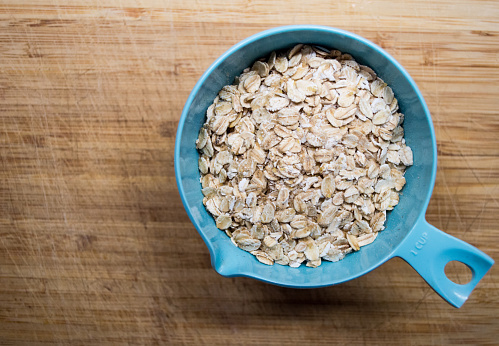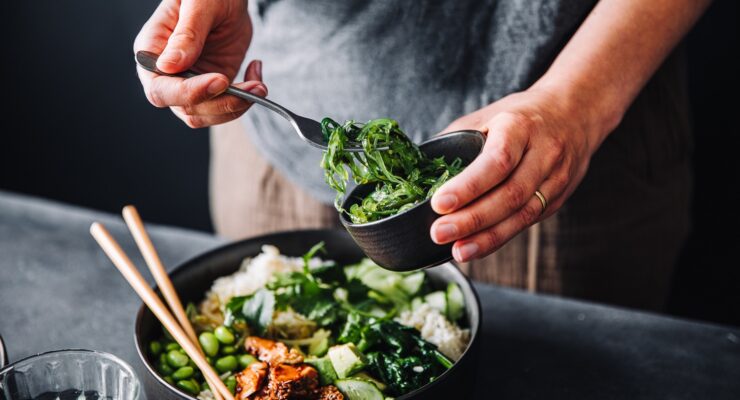7 Reasons You’re Not Losing Weight as Fast as Your Friend
Article posted in: Diet & Nutrition
If you’ve tried losing weight with a friend or spouse, and they seem to be dropping the pounds quicker than you can keep up, it might feel as though there is no justice in the world. And, if you’re lagging behind by a lot, eating all of the same foods, you might even feel like throwing in the towel.
How can that be? You’re eating the same amount of calories. You’re even exercising together. What has she—or he—got going for them that you don’t?
It turns out that a lot of what we thought we thought we knew about calories in, calories out, isn’t quite true. There are other factors besides burning what we take in that determine the speed at which we lose. In a study published by the American Diabetes Association, researchers found that the loss of one pound didn’t always equal cutting 3,500 calories, as previously thought. It can range from cutting 1,560 to 3,000 calories, depending on a number of factors.
So, curious why you’re not losing weight as fast as your friend?
These are the reasons losing weight could take longer for you:
1. The Thrifty vs. Spendthrift Metabolism
Researchers at the National Institute of Diabetes and Digestive and Kidney Disease found that people burn calories at different speeds. In a study published in 2015 by the journal Diabetes, 12 people were classified as having either “thrifty” or “spendthrift” body types, based on how they burned calories as measured by a high-tech, full-room “calorimeter.” When fasting, some people—the spendthrifts—burn through calories like a wildfire. Others, the “thrifty” folks, slow down their metabolism to conserve energy. You probably know which one you are. Unfortunately, this doesn’t change your weight loss strategy: Cutting calories and upping exercise will still work, but if your body wants to hang on to calories longer than you’d like, be patient.
2. Men vs. Women
Men, in part because they have more lean muscle mass than women, tend to lose faster with less effort. Muscle burns calories more efficiently than fat does, even at rest. Men’s testosterone helps build that muscle (even if it’s under a beer belly), while estrogen tells women’s bodies to hold onto calories just in case there’s a baby on board. Fair or not, these are just facts of life. However, women might use this information as an excuse to take on weight training, and build up that calorie-burning muscle mass as part of their exercise program.
3. Big vs. Not So Big
The larger you are, the harder your body has to work to do just about anything. So, this type of build is likely to burn more calories than the body of a thinner, shorter person. According to experts at the National Academy of Sports Medicine, if you weigh 150 pounds and your friend weighs 200 pounds, your pal will lose more weight that you do at first, even if you’re both sticking to a pretty serious diet. As your friend loses weight, the size advantage will diminish, but, if you think about it, you did have a bit of a head start from the get-go.
4. Good Genes vs. Bad Genes
Only a handful of genes have been potentially linked to obesity and, by one estimate, genes account for less than five percent of the obesity in the population. Still, there may be genetic differences between you and your friend, factoring into the speed at which you’re losing weight. For instance, a genetic mutation is possible. You may crave more high fat foods, or burn calories at a slower rate. But the good news is that genes aren’t destiny. Other studies have found that lifestyle factors—like not eating fried foods and making sure to exercise regularly—may help offset any poor programming at the chromosomal level.
5. What You Think You’re Eating vs. What You’re Really Eating
It’s not just “portion distortion,” the inability of most of us to eyeball portion sizes. Studies have found that some foods, particularly those from restaurants, can have 200 percent more calories than what is listed on the labels. Also, if you’re not measuring or tracking your food (which is easy with the Nutrisystem app), you may not be getting a true picture of what you’re actually eating every day. If you’re really not losing weight, you may be underestimating this number by hundreds of calories.
6. How Much You Think You Exercise vs. How Much You Really Do
Studies have found that most of us aren’t any better at estimating the calories we burn during exercise than we are at the calorie counts of foods. That 30-minute walk may have pooped you out, but you probably didn’t burn off that burger you ate at lunch time. How large you are and how fast you move changes the calorie burn for every activity. Like calories, not every exercise is equal. For example, according to a Harvard Medical School study, a 125-pound person burns 120 calories on a 30-minute walk at three and a half miles per hour, while someone 185 pounds walking the same amount of time and at the same speed burns 178 calories. Pace matters, too. Going up to four and a half miles per hour turns these numbers into 150 and 222
7. Old vs. Not So Old
The amount of fat on your body goes up steadily as you age—and it starts after age 30. Older people have as much as a third more fat than they did when they were younger, according to the US National Library of Medicine. Unfortunately, with age, you also lose lean muscle tissue… the kind that blasts fat. That can slow down your metabolism and your ability to lose weight as fast as you did back in the day when just cutting out your daily snack would melt off the pounds. But, it doesn’t mean losing weight is impossible. Add some weight training to your daily exercise routine to help build up more muscle tissue and increase your physical activity. Take the stairs, carry your shopping bags into the house one at a time, spend more time gardening… all of this will help you burn calories and get back to losing weight.
But, when it all comes down to it, your lifestyle change can impact your health on a number of different levels—not all immediately recognizable by the numbers on the scale. If you’re curious how your health stacks up, take a look at 6 Signs of Good Nutrition That Aren’t Weight.










